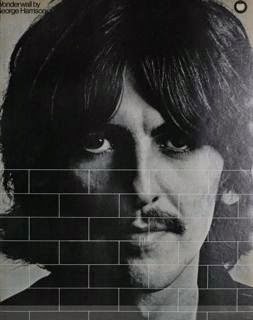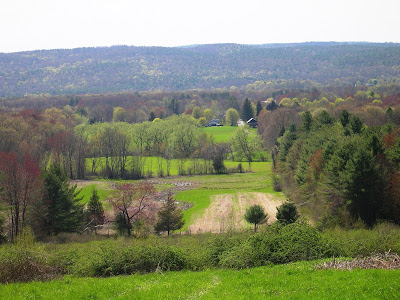The Working Class Mystic
By Apple Records Public domain via Wikimedia Commons
The Book of George – by now, you have probably put one and one together and realized that I am talking about George Harrison, most notably remembered as one of the Fab Four – that is, one of the Beatles. In addition to this recognition, however, George gained quite a following because of his spiritual practice and beliefs. Gary Tillery in his 2011 book, “Working Class Mystic: A Spiritual Biography of George Harrison,” writes about the April evening that George was suddenly overwhelmed by emotion so profound that he was quoted as saying, “ I felt in love, not with anything or anybody in particular, but with everything. Everything was perfect, in a perfect light, and I had an overwhelming desire to go around the club telling everybody how much I loved them – people I had never seen before.” Tillery calls George a “working-class mystic” because of his ability to relate to not only gurus and yogis, but also the everyday people of Liverpool and the world. George, in his own way, had found a spiritual path that would lead him from India around the globe and back.
But, was he a mystic? Mystic…this is a term that seems sort of foreign today. I mean, aren’t mystics people from long ago that led super saintly lives. How could a rock star be a mystic?
Let’s look at where the word came from and the meaning of the word. Mystic is derived from the Latin, mysticus, meaning “secret rites.” In Greek, mystikos, means “connected to the mysteries.” The Oxford dictionary defines a mystic as “a person who seeks by contemplation and self-surrender to obtain unity with or absorption into the Deity or the absolute, or who believes in the spiritual apprehension of truths that are beyond the intellect.” A mystic, therefore, is someone that practices the secret rites, which connect to the mysteries of their religion or belief system. Many people believe that one is born a mystic. Others believe mystics evolved through devotion and enlightenment.
Whether by birth or development through time, George’s mysticism – that is to say his ability to connect to the mysteries around him – provided him fertile fields in which to harvest his music.
Elie Wiesel once remarked, “What does mysticism really mean? It means the way to attain knowledge. It's close to philosophy, except in philosophy you go horizontally while in mysticism you go vertically.”
Like a shooting star flying straight into space, George seemed to have it all, however, his life was not a bed of roses. In addition to the traps of sex, drugs and alcohol found throughout the music industry, George had to come to terms with loss of privacy, attacks on himself and his family and tragedies that touched the lives of many he loved. Whether or not he was born a mystic is immaterial. What is important to remember is that searching for the truth within one’s self comes at a cost – the demons must be dealt with and George, like the rest of us, had his share.
George Harrison was a devotee of Krishna. This devotion produced a visible change in him, which even those close to him could see. This change caused some to back away, afraid of who George had become. In the song, “Light that Has Lighted the World,” George seems to recognize this. “I've heard how some people, have said/that I've changed/That I'm not what I was/How it really is a shame/The thoughts in their heads,/Manifest on their brow/Like bad scars from ill feelings they themselves arouse/So hateful of anyone that is happy or 'free'/They live all their lives,/without looking to see/The light that has lighted the world/It's funny how people, just won't accept change/As if nature itself - they'd prefer/re-arranged/So hard to move on/When you're down in a hole/Where there's so little chance,/to experience soul/I'm grateful to anyone,/that is happy or 'free'/for giving me hope/while I'm looking to see/The light that has lighted the world.”
Through his spiritual journey, George was experiencing the joy of connection to Spirit. This connection graces us with strength that endures the most devastating hardships; graces us with the ability to see beyond the obvious and graces us with Love that knows now boundaries.
Through his music, George’s connection to Spirit can be felt and heard. For instance, when we listen to him and his friends in the Traveling Wilburys play the End of the Line, it is not difficult to see Spirit shining through the lines ‘… even if you're old and gray…/you still got something to say…/remember to live and let live…/ the best you can do is forgive”
“The best you can do is forgive!” Now, those are true words of wisdom. However, their message is far from new. Many other mystics have said similar things. For instance, Buddhism teaches, “Judge not they neighbor…never is hate diminished by hatred. It is only diminished by love – this is an eternal law.” In Islam we find, “Forgive thy servant seventy times a day.” And, in the Tao we learn, “Recompense injury with kindness.”
Yes, George wasn’t telling us anything new. The concepts of loving one another, forgiving, being peacemakers have been around since humans first realized that there was something else other than themselves out there. What George did do was recreate this message in a way that was fresh and current. He infused the songs he wrote with the messages that he valued most – unconditional love – forgiveness – peace.
The older I have become, the more I have realized the importance of reading lyrics. We can listen to a song hundreds of times, but never really hear what the writer is saying. I remember the first time I actually read the words to “That’s the Way it Goes,” I was moved to tears. The last stanza just hit me in my solar plexus – “There's a fire that burns away the lies/Manifesting in the spiritual eye/Though you won't understand the way I feel/You conceal, all there is to know/That's the way it goes.”
For me these lines speak of how difficult it is to be spiritual in a world where material wealth is a priority for so many. The fire of Spirit (Flames often represent Spirit.) burns away all the rubbish, debris and twaddle of life, revealing that which is essential. Trying to live a truly spiritual life in this world often causes others to see a person as, either a hypocrite, (How can he live in a mansion and be spiritual?) or as a fruitcake (Did you know he gave all his belongings to the poor?)
The concept of the material world and it’s crippling effect on one’s spirit is of course, nothing new. Jesus warned that it would be easier to thread a camel through the eye of a needle (which was the small night gate of the city that people went through after the main gate was locked) than for a rich person to enter heaven. However, there is no need to go that far back into the past to hear a similar warning. Deepak Chopra said, “Seeking can become stressful when you apply the same laws that you apply in the material world - hard work, exacting plans, driving ambition, and attachment to outcome.” George understood this. In his song, Living in the Material World, he shared that it was his “hope to get out of this place, by the Lord Sri Krishna’s grace, my salvation from the material world.”
George had come to understand, happiness cannot be forced, love cannot be bought, spiritual growth cannot be created with a cookie cutter. Everyone must seek his or her own path.
As an interfaith minister, I often use the metaphor that spirituality is like a wheel. We are all running around the edges trying to find the right path to the Center: to a place of deeper understanding or a richer sense of spiritual fulfillment. We sometimes may forget we are not alone on the journey. Together, we are all traveling towards the center, but our individual roads are not the same. Some road take us over the mountain. Some roads take us through the mountain. Some roads take us around the mountain. Some of us may spend years in the desert of despair or lost in the forest of the unforgiving. Some of us seem to catapult from pain and suffering to glorious wholeness and back again. While others, seem to wander aimlessly back and forth, in and around on the road of I-don’t-know. Even those of us who feel strongly that we know where we are headed can be forced off course by the unexpected. We need each other as we journey spiritually. We need Spirit. We may not always know which path to take, but if we stay committed, remain focused on our spiritual journey we can be sure that we will get there.
George understood this. In fact, his song, Any Road, speaks of this quite clearly. He wrote, “I keep traveling around the bend/There was no beginning, there is no end/It wasn't born and never dies/There are no edges, there is no sides/Oh yeah you just don't win/It's so far out, the way out is in/Bow to God and call him Sir/But if you don't know where you're going/Any road will take you there."
The road of life can be dark and lonely, that’s for sure. But, when we do our best to love, to lend a hand, to forgive ourselves as well as others, and look deep within our own hearts, we can begin to see the glimmer of hope shining just on the horizon. When we can see the Inner Light, which guides us we can “…know the ways of heaven,” as George wrote, “ the farther one travels/ the less one knows” so, “arrive without traveling, see all without looking, do all without doing.”
George the working class mystic would tell you, “Little darling, it's been a long, cold, lonely winter… it feels like years since it's been here, (but) Here comes the sun….And I say, it's all right.
Namaste, Amen, Blessed be, Aho
© Rev. Linda M. Rhinehart Neas 2015




Comments